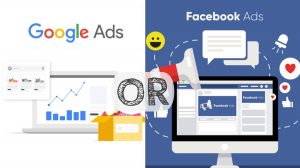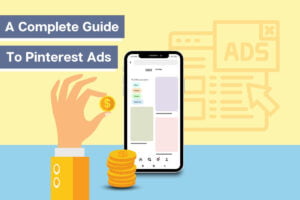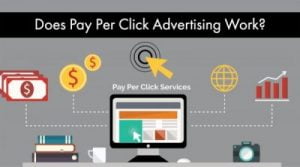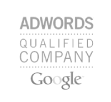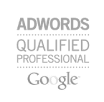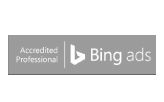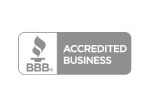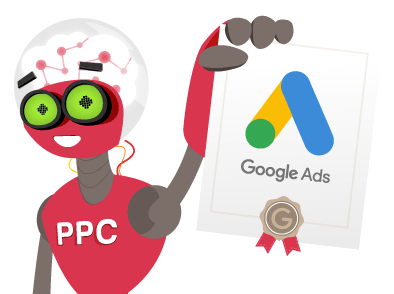Pay per click advertising is a fantastic way to increase your web presence and generate conversions. As a result, businesses throughout the world have dedicated a lot of time and money to developing effective PPC marketing strategies.
However, with so many different PPC channels, it can be difficult to know which one best suits your needs. Google AdWords, Facebook, and the Yahoo! Bing Network all come with their own pros and cons and are better suited for different situations.
So, how do you decide which one you should use? First…
What Is PPC?
Pay per click, or PPC, is an advertising model which allows advertisers to only pay for their advertisements when they are clicked on by users.
Google AdWords is one of the most common advertising channels that operates using a PPC model. Essentially, AdWords allows you to bid on certain keywords to have your ad displayed at the top of the search results page when a user searched for that keyword. Then, each time a user clicks on your advertisement, you pay a fee.
This form of online marketing is incredibly popular as it can generate a significant ROI. Since your advertisement only displays when users search for certain keywords, clicks are more likely to lead to conversions as the user is likely already interested in what you’re offering. As a result, when implemented properly, PPC ads can provide a very cost-effective way to increase traffic and conversions.
However, AdWords isn’t the only PPC channel available. Facebook and the Yahoo! Bing Network are other popular PPC channels which business owners use to increase their web presence. Depending on your needs, you might find that one of these PPC channels might be a better option than the others.
Now that we know that, how do you determine which PPC channel is best for our brand?
Identify Your Needs
How do you know which PPC channel you should use? The short answer is that it depends on your business type and your budget. Because depending on the type of business you run, your goals might vary, and you might not stand to benefit from certain features. Additionally, if your marketing budget is limited, you might need to opt for a PPC channel that offers lower PPC fees.
For example, if you own a retail business in a competitive industry like technology or gaming, you would likely benefit from the exposure that a successful AdWords campaign would offer you. While it might cost more than a PPC campaign through the Yahoo! Bing Network, it’s sure to increase your web presence by a lot more.
On the other hand, if you’re a local real estate agent who operates in a small market, you’d likely be wasting your money by running a national advertising campaign through AdWords. Instead, you might benefit more from choosing to advertise to your local market through Facebook’s PPC program. This could save you money and allow you to connect to potential clients on a more personal level.
Before choosing a PPC channel, it’s important to have clearly-established goals so that you can develop the most effective online marketing strategy possible.
Once you understand what your goals are, it’s important to consider the pros and cons that a few of the most popular PPC channels offer.
Pros And Cons Of The Most Popular PPC Platforms
Each of these PPC channels is popular for various reasons. Depending on the nature of your business, your marketing goals, your budget, and your audience some of these services might prove to be more beneficial for your business than others.
Consider these pros and cons before deciding which PPC channel to use.
Google AdWords
Google AdWords is one of the more popular options for business owners looking to implement an online marketing campaign.
Advantages:
First and foremost, AdWords offers advertisers the benefit of showcasing their business on the largest search engine in the world. Advertising on Google gives you access to a seemingly unlimited audience that other PPC channels cannot match.
Additionally, AdWords offers many tools like a keyword planner and detailed analytics to help users develop an effective PPC marketing strategy. Not only does AdWords give you access to an incredibly large audience, but it is very intuitive and rich with features.
Disadvantages:
The main drawback of AdWords is the cost. As you might expect, Google’s unrivaled traffic makes AdWords a very desirable service. This, of course, increases competition, which can make it quite expensive to launch a successful campaign. Particularly for small businesses, the cost of AdWords can make it an unrealistic option.
It’s not all bad, though, as costs can be significantly reduced by being strategic with your keyword choices and improving the quality of your advertisements.
As the largest social network in the world, Facebook gives you the opportunity to advertise to over one billion users, which include all users on Instagram as well.
Advantages:
As mentioned above, pretty much everyone uses Facebook and/or Instagram. No matter who your audience is, you can probably reach them through a Facebook PPC campaign. The exposure that a successful Facebook marketing strategy can bring your business can’t be overstated.
Moreover, Facebook PPC offers effective targeting options. If you want to target a national or global audience, you can do that. If you only want to advertise to middle-aged men who live in Indiana, you can do that too. Facebook’s targeting options let you appeal to as broad or as specific of an audience as you want and across multiple social media platforms.
Disadvantages:
Whereas your advertisements through AdWords or the Yahoo! Bing Network only appear when users search for relevant keywords, Facebook users who see your ads might not have any interest in them. This means that users are less likely to click on your advertisements. As a result, you could end up paying for a lot of clicks without generating any conversions.
Additionally, if you plan to use Facebook PPC advertising to increase your brand awareness in a local area, you’ll have to update your ads constantly. Users don’t want to be bombarded by the same ad every time they log into Facebook.
Yahoo! Bing Network
Google is, by far, the most popular search engine. Since Yahoo! and Bing aren’t able to compete with AdWords on their own, they chose to team up to allow advertisers to market their businesses across both search engines.
Advantages:
First, advertising through the Yahoo! Bing Network gives you access to everyone that doesn’t use Google. Of course, this audience isn’t as large; however, due to the affordability of keywords on the Yahoo! Bing Network, you might find it worthwhile to sacrifice a larger audience in favor of a smaller marketing budget.
Disadvantages:
As you’ve probably already considered, the major downfall of PPC advertising through the Yahoo! Bing Network is the lower traffic and limited growth potential. Even by joining forces, Yahoo! and Bing simply don’t get enough traffic to compete with Google. If you need to access as large of an audience as possible, this simply isn’t the best option for you.
Test Each Service
When it comes down to it, the best way to know which PPC channel works best for your business is to test them.
There’s no reason you can’t run cheap test campaigns through each service to help narrow down your options. Of course, a marketing campaign with a limited budget might not prove which channel is the best for you; instead, it can give you a good idea of which platforms your audience frequents. Before you make a final decision, make sure that you have tested each service to see which one is worth your money.
Final Thoughts
It can be difficult to determine which PPC channel will produce the ROI that you’re looking for. Every business has unique circumstances that might change which platform it would benefit from the most.
AdWords is the most popular option as Google’s unmatched reach means that brands can dramatically increase their web presence with an effective AdWords campaign. While its cost can be a determinant, AdWords is often the most effective PPC advertising option out there.
On the other hand, the Yahoo! Bing Network gives advertisers the ability to lower their costs while still reaching a sizeable audience. While this audience isn’t quite as large as Google’s, this PPC channel can still be a very cost-effective option for businesses with limited resources.
Lastly, Facebook can be a very versatile marketing platform. Depending on your goals, you can target millions of people across the world or a few thousand people in your local market. Facebook’s targeting options allow you to appeal to any and every audience.
Due to the many different qualities offered by each PPC channel, there isn’t necessarily a ‘best’ option. Only through a thorough evaluation of your marketing goals can you determine which of these advertising platforms will generate the greatest results for you.
Related Posts You Might Want To Read

